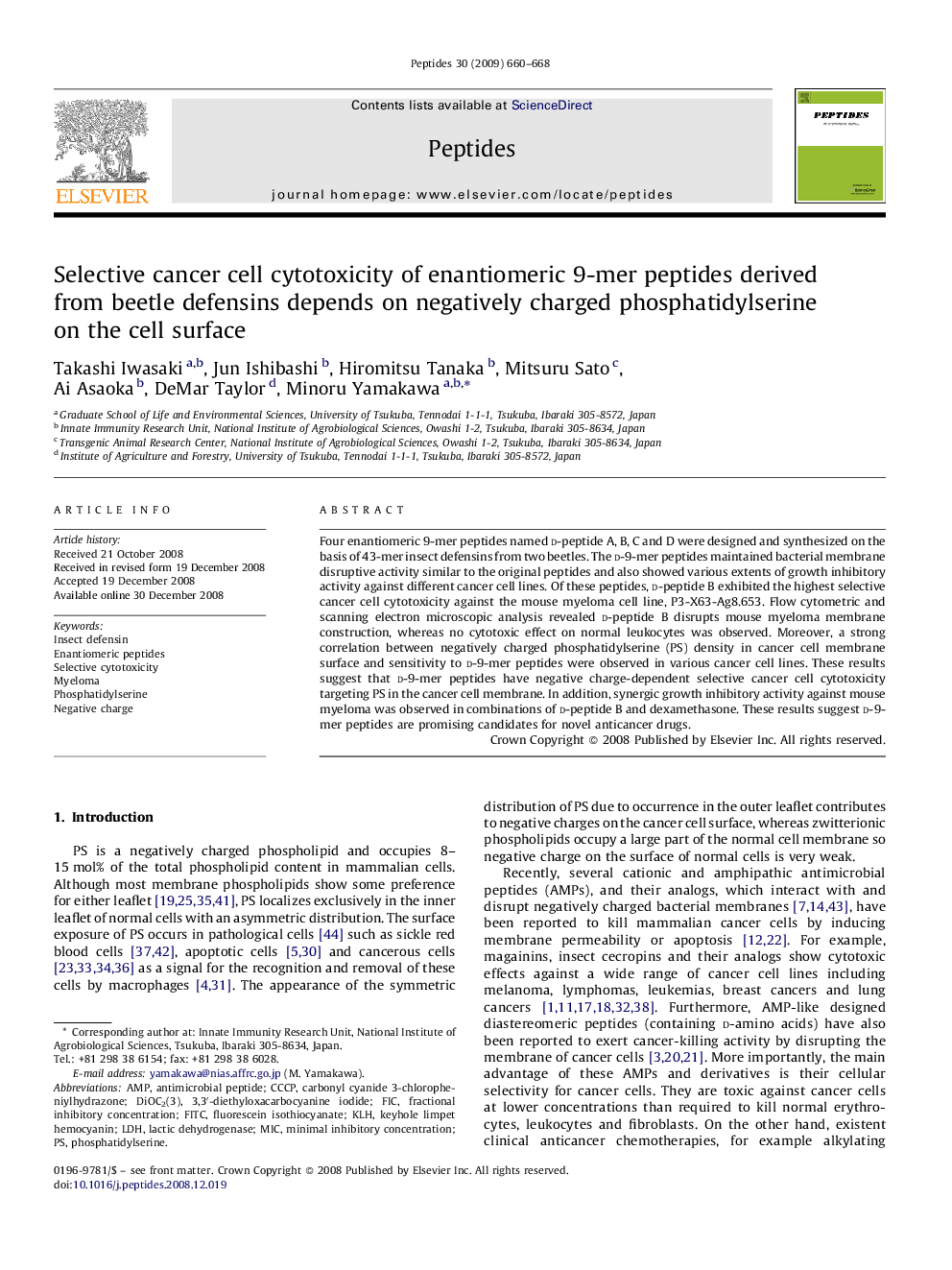| Article ID | Journal | Published Year | Pages | File Type |
|---|---|---|---|---|
| 2007000 | Peptides | 2009 | 9 Pages |
Four enantiomeric 9-mer peptides named d-peptide A, B, C and D were designed and synthesized on the basis of 43-mer insect defensins from two beetles. The d-9-mer peptides maintained bacterial membrane disruptive activity similar to the original peptides and also showed various extents of growth inhibitory activity against different cancer cell lines. Of these peptides, d-peptide B exhibited the highest selective cancer cell cytotoxicity against the mouse myeloma cell line, P3-X63-Ag8.653. Flow cytometric and scanning electron microscopic analysis revealed d-peptide B disrupts mouse myeloma membrane construction, whereas no cytotoxic effect on normal leukocytes was observed. Moreover, a strong correlation between negatively charged phosphatidylserine (PS) density in cancer cell membrane surface and sensitivity to d-9-mer peptides were observed in various cancer cell lines. These results suggest that d-9-mer peptides have negative charge-dependent selective cancer cell cytotoxicity targeting PS in the cancer cell membrane. In addition, synergic growth inhibitory activity against mouse myeloma was observed in combinations of d-peptide B and dexamethasone. These results suggest d-9-mer peptides are promising candidates for novel anticancer drugs.
